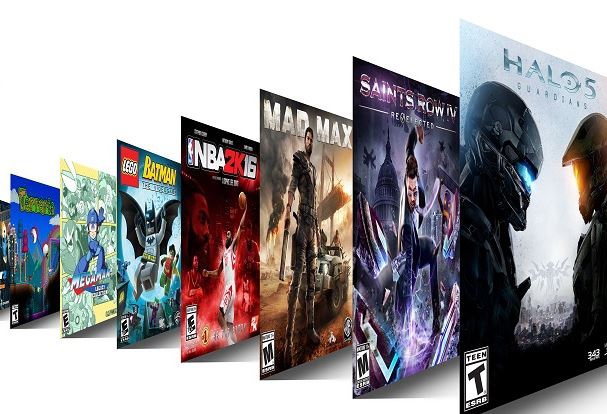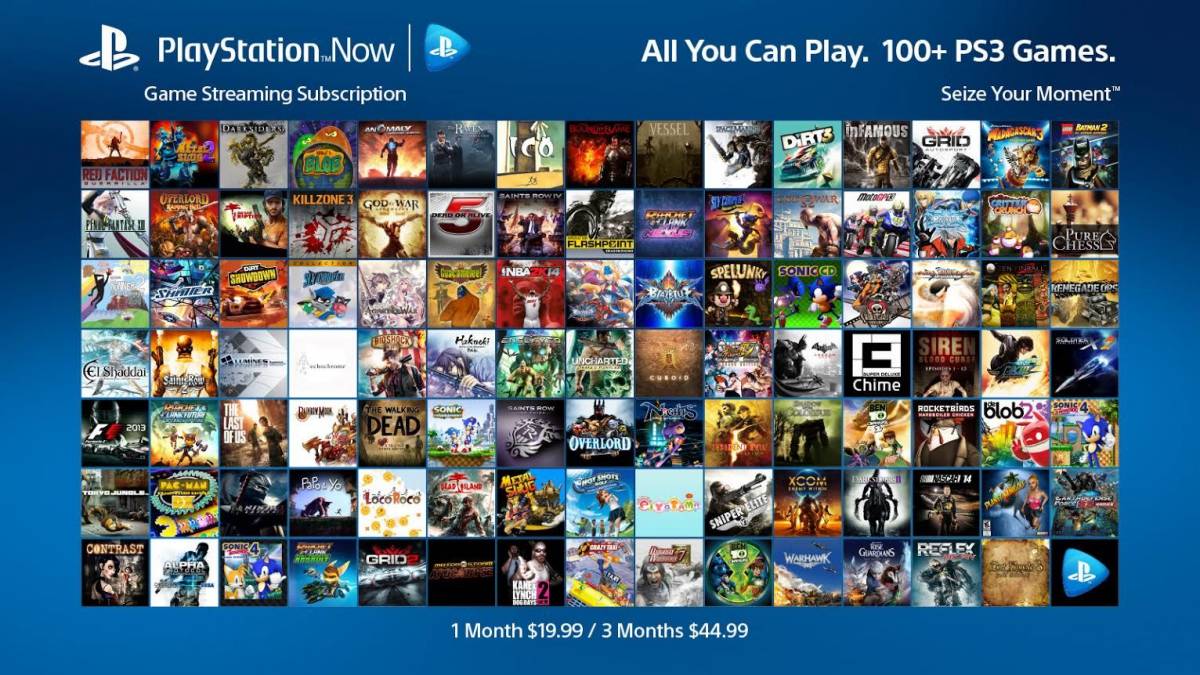At the end of February, Microsoft announced plans to roll out access to a library of games via a monthly subscription service called ‘Xbox Game Pass’. This runs in parallel to, but is juxtaposed with, Sony’s ‘PlayStation Now’ streaming service that has been available for some time but has so far been restricted to Playstation 3 games. We haven’t had many details on Xbox’s new service but it got me thinking about the idea more generally.
Industry professionals have likened the Microsoft announcement to Netflix or Spotify but this is fundamentally incorrect. These are streaming services at their core and as such bear a great deal more in common with Sony’s approach where you use your internet connection to play the game that is hosted on Sony’s servers rather than from your console. The Xbox equivalent will see users download the game from the host servers on Xbox Live and then play a digital copy of the game saved to their hard drive, in a similar way to purchasing and downloading a game from the Microsoft Store.

As they are each web-based subscription services, both make demands of the speed and reliability of your internet connection in different ways. The Sony service relies on a stable, quick connection to maintain the stream whereas Microsoft’s hinges on acceptable download speeds to ensure the user feels the system is worthwhile.
To understand the subtle differences between the two services, let’s imagine Joshua has an afternoon to himself and wants to play a game he doesn’t currently own. For the purposes of this hypothetical we will assume that Joshua has signed up to both subscriptions and that PS Now has updated to include PS4 games.
His choices are as follows:
– Get off his arse and go to the shops to buy it.
– Download a copy from the Xbox Library service.
– Stream a version from PS Now.
Option A is a complete and utter write-off because Joshua is a lazy git.
Option B will see Joshua have to wait while he downloads the game from the Xbox library. According to OFCOM, the average download speed in the UK is between 18.78 and 22.8Mbps and your typical video game file size is around 20gb. So if we assume a very optimistic 20mbps download speed for a 20gb game, Joshua is looking at a wait time of around an hour. Realistically, however, it is likely to be quite a bit more than this, as internet speeds in the UK vary massively from the cited number. Once it is downloaded, though, he should not experience any further issues.
Option C will mean, assuming Joshua has a stable, secure and consistent internet connection, that he will be playing the game straight away. If he cannot guarantee the quality of his stream, the game will be rendered unplayable.

It is entirely the reader’s choice which of these services seems more palatable. My interest is whether the very concept of a subscription service works in this market. The comparison industries are always music and film but I am convinced they are not true equivalents. Video games make huge demands on a player’s time and wallet in a way that music and film simply do not. Hundreds of pounds for the hardware, increasing costs for the software and incremental, additional fees for subscriptions. In the hypothetical case above, Joshua is already shelling out for two pre-existing subscription services; Xbox Live and Playstation Network. If you compare this to Spotify, which may well be the only subscription service an individual pays for their music, the total differential in price between the two types of media is astronomical. Now, nobody is holding a gun to your head and making you pay this. To do so is entirely of your own volition. However one could infer that both Microsoft and Sony are not fully aware of the existing demands on the consumer from a cost perspective.
Another concern is that access to a library of games, via whichever technology you choose, will not resonate with any kind of gamer; from the casual, intermittent buyer to the day-one adopter. If you consider that spectrum it is almost impossible to see where the streaming/library access model fits in; at one end a more spontaneous gamer doesn’t have the inclination to commit to a subscription whilst the more serious player will have already picked up the game if they were interested in it. Neither Xbox Game Pass nor PS Now will provide access to new games at launch so it does little to entice the avid consumer. Much in the same way that a Star Wars fan is unlikely to wait for the latest instalment to come out on DVD to watch it.

Spotify is often heralded as the saviour of the music industry from piracy and the hope presumably is that similar magic is applied to video games. However, once again the two are not equivalents. Music piracy is absolutely rife with even the least technologically proficient amongst us able to download entire albums for free. Spotify’s great virtue is the speed by which it connects its customers with the media they demand so they were able to convince the consumer that their service was worth a small monthly fee in return for mitigating all the risks associated with downloading music without paying for it, e.g. opening your computer up to malware and you know, doing something that is illegal. By comparison, video game piracy presents a much more significant challenge though is by no means impossible. So a streaming service would aim to provide a palatable alternative to a solution that actually isn’t readily available to consumers.
The main areas of concern for any proposed subscription that provides access to a games library are technological, financial and logistical; you need an internet connection quick enough to facilitate one, the financial capability to sustain it, and a lack of alternative options to necessitate it. I am happy to be absolutely wrong about this but I get the impression that unless significant measures are taken to ensure success, this will be yet another misstep for an industry that is still finding its feet. Clearly this is just my impression of the situation and would love to hear alternative points of view on the subject.
Some of the coverage you find on Cultured Vultures contains affiliate links, which provide us with small commissions based on purchases made from visiting our site. We cover gaming news, movie reviews, wrestling and much more.



